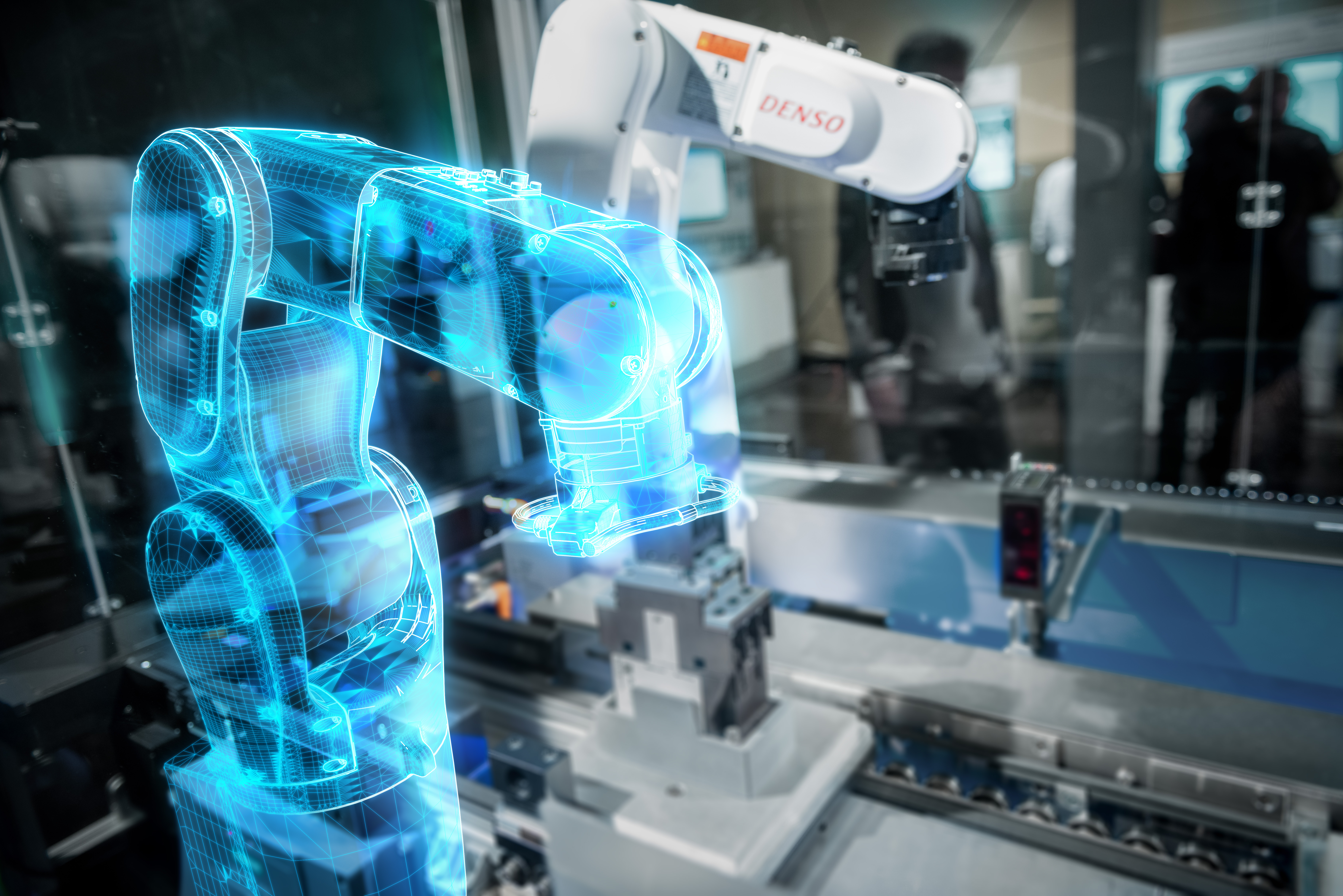
Visitors to automatica 2018, taking place in Munich this week, will be getting a sneak preview of the possibilities for handling systems and robot integration through simulation, engineering and machine connectivity from the largest manufacturing company in Europe.
Exhibiting for the first time at automatica 2018, Siemens, which specialises in electrification, automation and digitalisation, is focusing on ways in which industrial enterprises of all sizes can benefit from digital transformation, through from product design and production, to the engineering process and new services.
Siemens is showcasing integrated and user-oriented Digital Enterprise solutions designed to sharpen the competitive edge of both end users and machine builders. Today’s machines must be able to offer not only greater flexibility, but also a higher degree of automation through the use of handling and assembly systems – a process supported by integrating robotics into production machinery. In addition, automated engineering and the simulation of machines and product lines are enabling even shorter times to market.
Robot integration
Siemens debut at automatica 2018 sees the company showcasing new possibilities for handling systems and robot integration through simulation, engineering and machine connectivity with its portfolio of automation, drive technology and software. The featured solutions for digitalised manufacturing are increasing convergence of the virtual and real production worlds, opening up exciting new potential for improving productivity through the simulation of plants and machines, as well as new scope for connectivity.
The technologies on show for improving the efficiency and economy of production processes include solutions for virtual commissioning, the integration of robotics into machine building and intuitive robot programming in the engineering portal.
Visitors will learn how to use the open Internet of Things (IoT) operating system MindSphere from Siemens and MindApps to implement cloud-based solutions such as new maintenance concepts to boost the productivity and availability of their plants and machines. Digital Enterprise
The Digital Enterprise provides the manufacturing industry with a range of software and hardware solutions for the integration and digitalisation of the entire value chain. The result is a digital twin which uses a data model to depict the product, the process and the manufacturing. To ensure that both machine users and machine builders are able to optimise the benefits of digitalisation, a shared database encompasses everything from product design and production planning through engineering and production to services.
This integrated approach from the perspective of the product manufacturer was illustrated at the show using the example of an industrial laptop from design through production to use of the data, encompassing product design, testing and simulation, moving on through production planning and engineering to production execution and finally services.
Companies can reap major benefits from this integrated approach, which allows them to step up collaboration from any location and at any time – for instance through rapid, intuitive and secure detection and the logging and fixing of problems from within a virtual reality meeting. Immersion into the digital twin using a VR headset allows engineers to carry out a thorough technical check of plants or machines, saving time when it comes to physical commissioning. Sinumerik Run MyRobot from Siemens provides a solution for linking robots to machine tools, ranging from simple connection or convenient integration through performing handling tasks to full system integration of the robot kinematics. While the CNC takes charge of robot path control, the robot can be integrated into the existing CAD/CAM-CNC process chain and IT infrastructure. The benefits for users include greater path control accuracy, more flexibility and improved productivity.
Automatic guided vehicle systems
Machine customisation is becoming more and more important for machine users. To ensure efficient assembly despite a high degree of customisation, production must be structured for flexibility. Major potential exists here specifically in the field of material handling. Automatic guided vehicle systems can play a significant role in implementing a flexible production strategy. Digital Enterprise solutions also benefit the machine building sector by enabling the end-to-end digitalisation of every phase of a machine’s life cycle, beginning with concept design and continuing through engineering and commissioning to services.
Digital twin
A customer application example which will feature at the fair is an assembly machine for consumer electronics by Bozhon Precision Industry Technology. The machine was engineered and commissioned using a digital twin located in Germany, while the physical machine was being simultaneously built in China. Almost 80% of the machine’s functional features were validated using virtual commissioning, resulting in faster, more efficient production. Using a model of the Sinamics S210 servo drive system comprising a converter and specifically developed Simotics S-1FK2 servo motors as well as OCC (One Cable Connection), Siemens will demonstrate solutions for robotics and handling automation. In conjunction with a servo motor, rapid sampling and smart control algorithms for the converter, a high-grade encoder system, and the combination of low rotor inertia and high overload capability, the featured drive system achieves outstanding dynamic performance and precision. Siemens will also demonstrate a range of kinematic applications for the handling market using a model at the show. The “Simatic Safe Kinematics” software library makes it possible to safely monitor selected kinematic motions in space, for instance to protect machine operators at work. This is achieved by monitoring the speed of selected points, for example the tool centre point, and freely configurable zones such as the working and protection areas.




